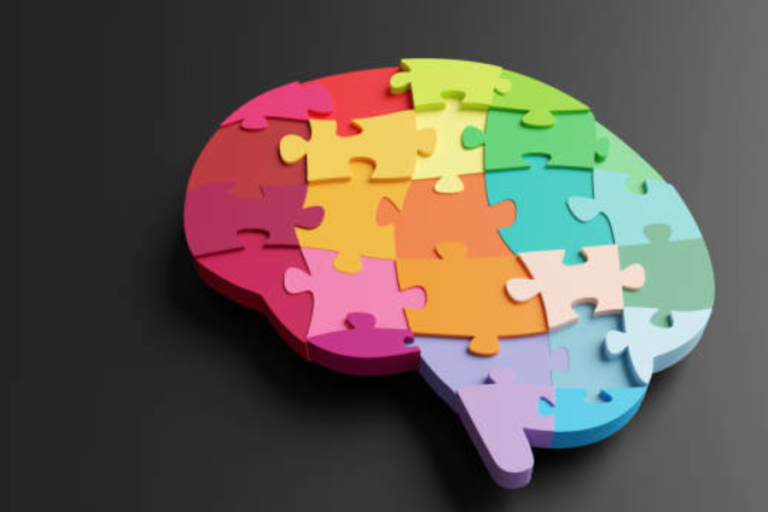The Science Behind Laughter: A Boost for Body and Mind
Laughter is a joyful experience that transcends cultural and linguistic boundaries, connecting people across different ages and backgrounds. It’s more than just a response to humor; it’s a powerful tool for enhancing both mental and physical health, strengthening social bonds, and improving overall well-being. This article delves into the enchanting nature of laughter, explores its numerous benefits, and reveals why it is often celebrated as the best medicine.
The Science of Joyful Laughter
When we laugh, our brain releases a cocktail of feel-good chemicals such as dopamine, endorphins, and serotonin. These neurotransmitters play a crucial role in regulating our mood and alleviating pain. Additionally, laughter activates the brain’s reward system, offering a pleasurable boost akin to the effects of addictive substances, but without the negative side effects.
Advantages for Physical Well-being
Laughter brings remarkable advantages to your physical health. It strengthens your immune system by boosting antibody production and activating protective T-cells, enhancing your body’s ability to ward off illnesses. Additionally, laughter benefits heart health by increasing your heart rate and improving blood circulation, which can reduce the risk of heart disease.
Advantages for Mental Wellness
Laughter serves as a natural stress reliever. It lowers levels of stress hormones such as cortisol and adrenaline, helping you unwind. Beyond alleviating stress, laughter can also aid in managing symptoms of depression and anxiety by providing a mental escape and shifting your perspective. Regular laughter can elevate your mood and enhance your overall mental well-being.
Having Fun and Forming Friendships
Laughter is a powerful tool for building connections and deepening relationships. Sharing a laugh with others fosters a sense of camaraderie, breaks down social barriers, and creates a feeling of togetherness. In group settings, laughter is often contagious, spreading joy and improving the overall atmosphere.
Having a good laugh at work
Incorporating humor and laughter into the workplace can transform it into a more positive and productive environment. When employees share a good laugh, it reduces stress, stimulates creativity, and enhances teamwork. Organizations that cultivate a fun and relaxed atmosphere often find their employees are happier and more committed to their work.
The Restorative Potential of Comedy
Laughter therapy, also known as humor therapy, leverages the power of laughter to support healing and enhance quality of life. Used in various healthcare settings, such as hospitals and mental health clinics, it helps patients manage pain, elevate their mood, and improve overall well-being. This method is particularly beneficial for those managing chronic illnesses.
Different Cultural Views on Laughing
Different cultures interpret laughter in diverse ways. In some societies, it’s viewed as a symbol of joy and vitality, while in others, it may be considered inappropriate in certain contexts. Understanding these cultural variations helps us appreciate the many ways laughter is experienced and expressed across the globe.
Laughing and Growing Older
Laughter plays a crucial role in healthy aging. It helps older adults maintain social connections, which are essential for mental and emotional health. Moreover, laughter can enhance memory and cognitive function, making it a valuable asset for keeping the mind sharp as we age.
How to Add More Laughter to Your Life
There are plenty of ways to bring more laughter into your daily routine. Watching comedy films, reading humorous books, and spending time with witty friends can all boost your laughter quotient. You might also explore laughter yoga classes or attend comedy shows to regularly indulge in the joy of laughter.
Laughter in the Classroom
In education, laughter can be a powerful tool. It creates a positive learning atmosphere, reduces student anxiety, and makes lessons more engaging. Teachers who infuse humor into their teaching often find that their students are more motivated and retain information better.
The Impact of Media and Entertainment
The media and entertainment industry plays a huge role in providing us with opportunities to laugh. Comedy shows, stand-up performances, and funny social media content keep us entertained and shape our cultural norms around humor.
Challenges in Studying Laughter
Researching laughter presents unique challenges due to its subjective nature and the varying contexts in which it occurs. Scientists must account for individual differences in humor perception and the diverse situations that trigger laughter. Despite these complexities, ongoing research continues to shed light on the many benefits and mechanisms of laughter.
Building Stronger Relationships
Laughter has a unique ability to strengthen relationships by fostering closeness and trust. Couples who share laughter often experience greater satisfaction and are better equipped to handle conflicts. Similarly, laughing with friends and family can deepen bonds and create lasting memories.
Conclusion
Laughter is a remarkable and multifaceted experience that enriches our physical health, mental well-being, and social connections. Its universal appeal and ability to spread joy make it an essential part of our lives. Embracing the power of laughter can enhance our health, happiness, and relationships, leading to a more fulfilling and connected life.
Facts:
- Laughter and Chemicals: Laughter triggers the release of dopamine, endorphins, and serotonin, which are neurotransmitters responsible for mood regulation and pain relief.
- Physical Health Benefits: Laughing boosts immune system function by increasing antibody production and activating T-cells. It also improves heart health by enhancing blood circulation and lowering the risk of heart disease.
- Mental Wellness: Laughter helps reduce stress by lowering cortisol and adrenaline levels. It also provides relief from symptoms of depression and anxiety by offering a mental break and changing one’s outlook.
- Social Benefits: Sharing laughter strengthens social bonds, breaks down barriers, and fosters a sense of camaraderie. It is also contagious in group settings, spreading joy and improving the overall atmosphere.
- Workplace Impact: Humor and laughter in the workplace can lead to a more positive and productive environment, reduce stress, stimulate creativity, and enhance teamwork.
- Cultural Perspectives: Different cultures view laughter differently; in some, it’s a sign of vitality and joy, while in others, it may be considered inappropriate in certain contexts.
- Aging: Laughter helps older adults maintain social connections and can enhance memory and cognitive function, contributing to healthy aging.
- Laughter Therapy: Humor therapy is used in healthcare settings to help patients manage pain, improve mood, and support overall well-being, particularly for those with chronic illnesses.
- Educational Benefits: Laughter in the classroom creates a positive learning environment, reduces anxiety, and makes lessons more engaging, improving student motivation and retention.
Summary:
Laughter is a universal experience that goes beyond just being a reaction to humor; it is a powerful tool for enhancing both mental and physical health, fostering social connections, and improving overall well-being. The science behind laughter reveals that it releases feel-good chemicals in the brain, boosts immune function, and supports heart health. Mentally, it reduces stress and aids in managing depression and anxiety. Socially, laughter builds relationships and enhances group dynamics. In the workplace, it contributes to a positive atmosphere and increased productivity. Humor therapy demonstrates laughter’s healing potential, while cultural perspectives on laughter vary globally. As we age, laughter helps maintain mental sharpness and social ties. Incorporating more laughter into daily life, through activities like comedy, humorous reading, and social interactions, can greatly enrich our lives.
FAQs:
- How does laughter benefit physical health?
- Laughter strengthens the immune system by boosting antibody production and activating T-cells, which helps the body fend off illnesses. It also improves heart health by increasing heart rate and blood circulation, which can reduce the risk of heart disease.
- What are the mental health benefits of laughter?
- Laughter reduces stress by lowering levels of cortisol and adrenaline. It also provides relief from symptoms of depression and anxiety by offering a mental break and changing one’s perspective. Regular laughter can enhance mood and overall mental well-being.
- How can laughter strengthen relationships?
- Sharing laughter builds camaraderie, breaks down social barriers, and fosters a sense of togetherness. It can improve relationships by creating a positive and supportive environment, which is particularly valuable in both personal and professional settings.
- What impact does laughter have in the workplace?
- Incorporating humor and laughter in the workplace can lead to reduced stress, increased creativity, and enhanced teamwork. A fun and relaxed atmosphere often results in higher employee satisfaction and retention.
- What is laughter therapy?
- Laughter therapy, or humor therapy, uses laughter to support healing and improve quality of life. It is utilized in healthcare settings to help patients manage pain, boost mood, and improve overall well-being, especially for those with chronic illnesses.
- How does laughter affect aging?
- Laughter helps older adults maintain social connections, which are crucial for mental and emotional health. It also supports cognitive function and memory, contributing to healthier aging.
- Why is laughter viewed differently in various cultures?
- Different cultures interpret laughter in various ways. In some, it is seen as a sign of joy and vitality, while in others, it may be considered inappropriate in certain situations. Understanding these cultural differences helps appreciate the diverse expressions of laughter worldwide.
- What are some ways to incorporate more laughter into daily life?
- To increase laughter in daily life, consider watching comedy films, reading funny books, spending time with humorous friends, attending comedy shows, or exploring laughter yoga classes.
- How does laughter benefit education?
- In educational settings, laughter creates a positive atmosphere, reduces student anxiety, and makes lessons more engaging. Teachers who use humor often find their students are more motivated and retain information better.
- What role does media and entertainment play in providing laughter?
- Media and entertainment, including comedy shows, stand-up performances, and funny social media content, provide regular opportunities for laughter and influence cultural norms around humor.







